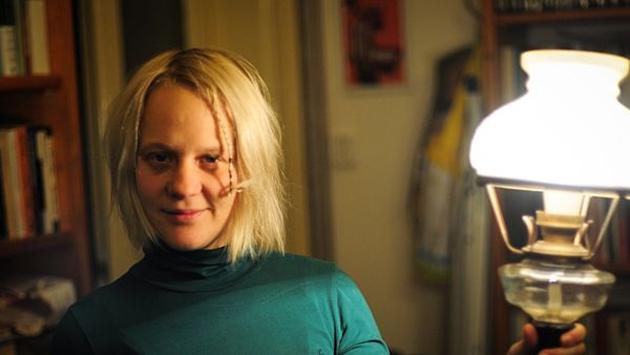Some children were playing on the playground. They were probably being too
loud because they were really into their game. Some might say they were whooping
it up. A neighbor didn’t like it and started yelling at them out the window to
be quiet. She threw in some remarks about “gypsies” because the children were
Romani. One of the little girls looked up at the lady and said to her: “Lady,
why are you shouting at us? When you were still swinging from the trees, we were
building Mohenjo Daro!”
My sister-in-law told me that anecdote several years ago. Back then I laughed
and thought to myself that the little girl had probably met Milena Hübschmannová
or one of her pupils. My next thought was whether the way in which that girl had
processed that lecture or school assembly really “applies”. Is it enough for her
to build her self-esteem on the basis of an ancient, celebrated history?
The celebration of national history has always aggravated me a bit, mainly
because it always seemed ridiculous, and never more so than when I saw what
other nations do with it. The French, for example, learn only about Napoleon’s
victorious battles. All nations probably adjust and distort their own histories.
Just as with written history, I also have always chuckled tolerantly over all
those famous celebrities and surveys about, for example, who is the greatest
Czech. I also take all of the attempts to co-opt famous figures with a grain of
salt, such as the fact that Sigmund Freud was born in the town of Příbor, or
that Edmund Husserl was also Moravian (i.e., a German of Moravian origin). I
could continue in this vein. We might also reflect over to what degree Franz
Kafka, for example, was a “Czech”.
Do the Czechs need this? Do the Roma need it? The answer to that is not easy,
but as long as we live in a world where the big nations keep cherishing and
updating their celebrities, then the oppressed or the small nations will need it
even more.
Does that mean, when I put it this way, that Romani people aren’t Czechs?
That’s complicated, because ethnic identity is not an easily graspable category.
Even if we assume that Romani people in the Czech Republic feel like Czech
citizens, a large portion of them also feel they are Romani. If we take the best
possible outcome of this, we can view it as diversity, which is beautiful. The
civic principle does not necessarily stand in opposition to diverse ethnicity.
What is even more fascinating about Romani ethnicity, and I mean this without
any irony at all, is its worldliness. If we were to conduct a survey asking who
is the greatest Romani figure, it would be interesting to observe how many
Romani people would name someone from the Czech Republic, how many would look
further afield in Europe, and how many would choose someone from even more
distant parts of the world.
Another argument that cannot be forgotten when reflecting on the need for and
purpose of ethnic pride is the fact that children from ethnic minorities achieve
better school results when their specific ethnicity is part of a school’s
curriculum and worked with positively. Naturally, this is no great discovery. I
myself attended a “foreign” school because I went to high school in France. It
was enough for some teachers to make a positive mention of that teensy-tiny
country in Central Europe (or from their point of view, Eastern Europe) and I
immediately had more motivation to learn.
If we generalize from this – because the psyches of adults operate the same
as those of pupils in the schools – then the positive image of our Czech,
English, French or Romani “I” is important for motivation in life. Even though
it is obvious that we cannot base our identity and pride on a single pillar,
i.e., we cannot be content just with being "good" because we belong to a nation,
our ethnicity in many cases is an essential component of how we perceive
ourselves.
I don’t know whether it is possible, by emphasizing famous Romani people, to
overcome the wave of negative news items about Roma that comes gushing at us
from the media and are spread through the widest possible variety of hoaxes
online. However, the joy in the eyes of Romani students when I tell them about
Romani celebrities has convinced me that it does serve a purpose. Even though it
sometimes might seem a bit funny or overblown, at some point it might change
somebody’s life.
